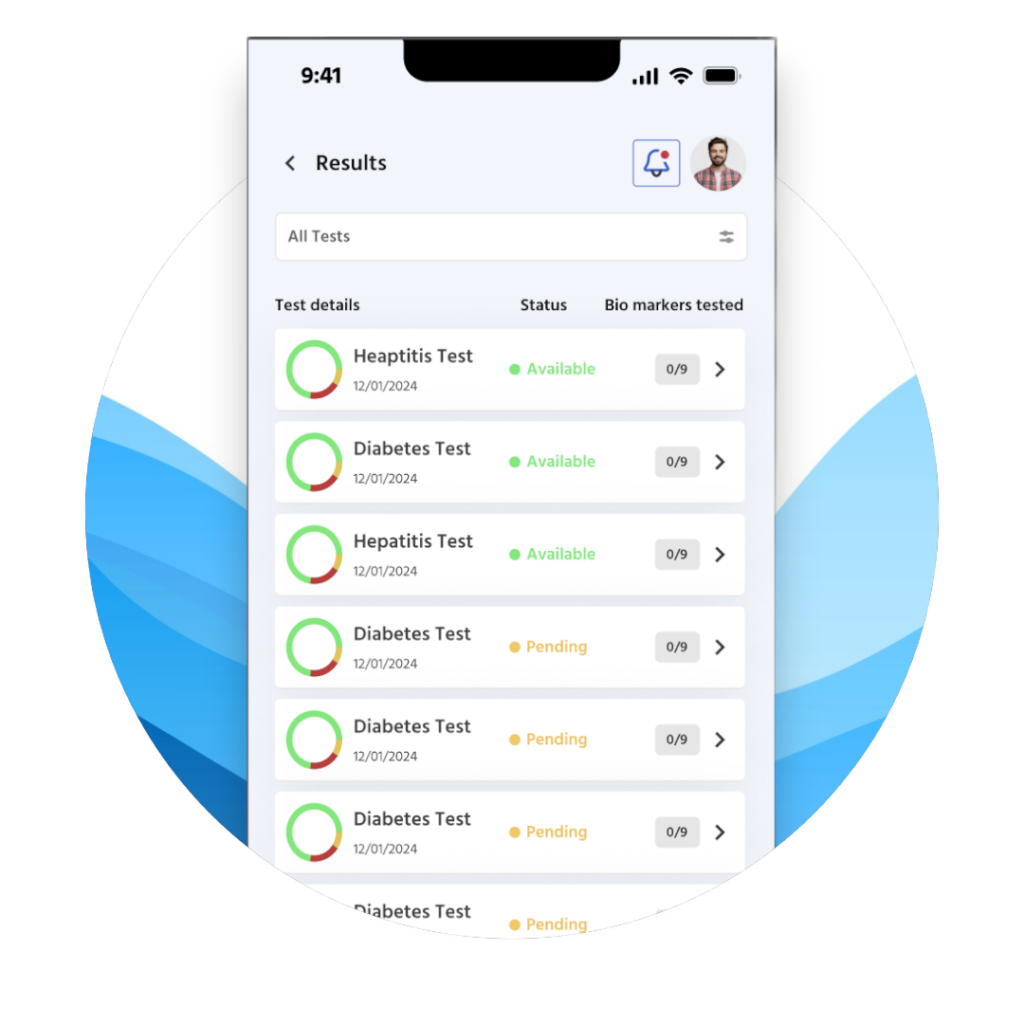Feeling constantly tired all the time and drained? We’ve formulated a specific test to check for this.
Feeling tired all the time is also often accompanied by other symptoms such ss:
If this sounds like you then this would be a ideal blood test.
The Feeling Tired All The Time blood test combines several biomarkers into one comprehensive test to give a more complete picture of your health.
Feeling tired all the time is one of the most common reasons for people seeing a doctor. It can be caused by many conditions. Some medical causes of feeling tired all the time include:
We cover the relevant biomarkers in detail to help identify any underlying causes for your persistent fatigue.
High Sensitivity C-Reactive Protein (CRP) serves as an inflammation marker, indicating the presence of inflammation in the body without specifying its location. The High Sensitivity CRP (CRP-hs) test is employed to identify low-level inflammation, believed to contribute to damage in blood vessels, potentially leading to a heart attack or stroke. Significant inflammation occurs around the site of a severe injury or infection, such as the swelling observed in a twisted ankle. Any such injury can result in an elevation of CRP-hs levels
Ferritin is a complex protein that stores iron in different parts of your body, like the liver, spleen, bone marrow, and certain cells. Its job is to manage the absorption, storage, and release of iron. When your body needs iron, ferritin releases it. If your ferritin levels drop too low, you'll run out of iron, and your bone marrow won't be able to make enough red blood cells.
Total iron-binding capacity (TIBC) assesses how well your body can transport iron effectively in the bloodstream.
Iron is a necessary mineral for our bodies. It's a key part of haemoglobin, a protein in red blood cells that transports oxygen. When we lack iron, our haemoglobin levels drop, affecting oxygen delivery to cells and causing symptoms like fatigue and dizziness. The amount of iron in our blood can be influenced by recent diet, so it's usually checked alongside other markers in an iron status test, rather than on its own.
The liver produces transferrin, the primary blood protein that binds to and carries iron throughout the body. This test tells you the extent to which this protein is saturated with iron.
Vitamin D is, in fact, a hormone generated by your skin in response to sunlight exposure. The vitamin D produced through sun exposure, known as vitamin D3, must undergo conversion into another form called 25 hydroxycholecalciferol (25 OH) before your body can utilize it. Vitamin D (25 OH) represents the primary circulating form and is considered the most accurate indicator of vitamin D supply to your body.
Vitamin D is crucial for maintaining healthy bones and teeth by facilitating calcium absorption. Additionally, it plays roles in muscle health, immune function, and mental well-being.
Symptoms of low vitamin D include muscle weakness, mood swings, and fatigue. Many individuals in the UK have insufficient vitamin D levels, with those with dark skin and limited outdoor exposure being particularly vulnerable.
While small amounts of vitamin D can be obtained from food, especially oily fish, eggs, and vitamin-D fortified foods, addressing a vitamin D deficiency is unlikely through dietary means alone.
Thyroxine (T4), one of the thyroid hormones produced by the thyroid gland, plays a crucial role in accelerating metabolism. The majority of T4 is typically bound to carrier proteins in the blood. This test measures the free, or unbound, T4, which is the active form in the body. When free T4 levels are too low, it may result in symptoms such as fatigue, weight gain, and intolerance to cold, reflecting a potential underactive thyroid (hypothyroidism). Conversely, elevated levels of free T4 may lead to symptoms such as weight loss, nervousness, and heat intolerance, indicating a potential overactive thyroid (hyperthyroidism). Free T4, being the less active of the two primary thyroid hormones, requires conversion to a more active form when needed to exert its effects on cells. Maintaining an appropriate balance is crucial for overall thyroid function and well-being
Thyroid Stimulating Hormone (TSH) is manufactured in the pituitary gland to regulate the thyroid gland's production of thyroid hormones, thyroxine (T4) and triiodothyronine (T3). When the levels of thyroid hormones in the blood are low, increased TSH production stimulates the thyroid gland to produce more. Conversely, elevated thyroid hormone levels prompt the pituitary to reduce TSH production, slowing down thyroid hormone production. Abnormal TSH levels, whether too high or too low, often indicate an issue with the thyroid gland, leading to either underproduction or overproduction of thyroid hormones. Occasionally, disruptions in the pituitary gland can also result in irregular TSH levels.

Our top-tier health dashboard is designed to transform you into a master of your own health. Featuring a user-friendly interface, it offers all the vital information necessary for making informed decisions about your health and wellness. Whether it's identifying hormone imbalances or ensuring your diet is nutritionally complete, our dashboard provides the insights you need to fully comprehend your body's needs and functions.
Don’t worry, we don’t just provide your levels and leave you to it. We have our team of medical experts on standby to explain any out-of-range results, and provide information and advice specifically tailored to you.

Getting the insights you need to improve your health has never been easier.

Get cozy. Take a simple finger prick blood sample.

Use our pre-paid envelope to send us your sample using any post box.

We send you results within 3 days straight to your mobile.

Get cozy. Take a simple finger prick blood sample.

Use our pre-paid envelope to send us your sample using any post box.

We send you results within 3 days straight to your mobile.

Get cozy. Take a simple finger prick blood sample.

Use our pre-paid envelope to send us your sample using any post box.

We send you results within 3 days straight to your mobile.

